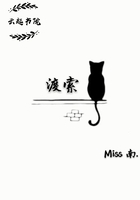Oh! did we but know of the shadows so nigh, The world would indeed be a prison of gloom;
All light would be quenched in youth's eloquent eye, And the prayer-lisping infant would ask for the tomb.
For if Hope be a star that may lead us astray, And "deceiveth the heart," as the aged ones preach;
Yet 'twas Mercy that gave it, to beacon our way, Though its halo illumes where it never can reach.
ELIZA COOK.
As the day closed and Mag did not appear, surmises were expressed by the family that she never intended to return. Mr. Bellmont was a kind, humane man, who would not grudge hospi-tality to the poorest wanderer, nor fail to sym-pathize with any sufferer, however humble.
The child's desertion by her mother appealed to his sympathy, and he felt inclined to succor her.
To do this in opposition to Mrs. Bellmont's wishes, would be like encountering a whirlwind charged with fire, daggers and spikes. She was not as susceptible of fine emotions as her spouse.
Mag's opinion of her was not without founda-tion. She was self-willed, haughty, undisciplined, arbitrary and severe. In common parlance, she was a SCOLD, a thorough one. Mr. B. remained silent during the consultation which follows, engaged in by mother, Mary and John, or Jack, as he was familiarly called.
"Send her to the County House," said Mary, in reply to the query what should be done with her, in a tone which indicated self-importance in the speaker. She was indeed the idol of her mother, and more nearly resembled her in dis-position and manners than the others.
Jane, an invalid daughter, the eldest of those at home, was reclining on a sofa apparently un-interested.
"Keep her," said Jack. "She's real hand-some and bright, and not very black, either."
"Yes," rejoined Mary; "that's just like you, Jack. She'll be of no use at all these three years, right under foot all the time."
"Poh! Miss Mary; if she should stay, it wouldn't be two days before you would be telling the girls about OUR nig, OUR nig!" retorted Jack.
"I don't want a nigger 'round ME, do you, mother?" asked Mary.
"I don't mind the nigger in the child. I should like a dozen better than one," replied her mother. "If I could make her do my work in a few years, I would keep her. I have so much trouble with girls I hire, I am almost persuaded if I have one to train up in my way from a child, I shall be able to keep them awhile. I am tired of changing every few months."
"Where could she sleep?" asked Mary. "I don't want her near me."
"In the L chamber," answered the mother.
"How'll she get there?" asked Jack. "She'll be afraid to go through that dark passage, and she can't climb the ladder safely."
"She'll have to go there; it's good enough for a nigger," was the reply.
Jack was sent on horseback to ascertain if Mag was at her home. He returned with the testimony of Pete Greene that they were fairly departed, and that the child was intentionally thrust upon their family.
The imposition was not at all relished by Mrs.
B., or the pert, haughty Mary, who had just glided into her teens.
"Show the child to bed, Jack," said his mother.
"You seem most pleased with the little nigger, so you may introduce her to her room."
He went to the kitchen, and, taking Frado gently by the hand, told her he would put her in bed now; perhaps her mother would come the next night after her.
It was not yet quite dark, so they ascended the stairs without any light, passing through nicely furnished rooms, which were a source of great amazement to the child. He opened the door which connected with her room by a dark, unfinished passage-way. "Don't bump your head," said Jack, and stepped before to open the door leading into her apartment,--an unfin-ished chamber over the kitchen, the roof slant-ing nearly to the floor, so that the bed could stand only in the middle of the room. A small half window furnished light and air. Jack returned to the sitting room with the remark that the child would soon outgrow those quarters.
"When she DOES, she'll outgrow the house," remarked the mother.
"What can she do to help you?" asked Mary.
"She came just in the right time, didn't she?
Just the very day after Bridget left," continued she.
"I'll see what she can do in the morning," was the answer.
While this conversation was passing below, Frado lay, revolving in her little mind whether she would remain or not until her mother's return. She was of wilful, determined nature, a stranger to fear, and would not hesitate to wander away should she decide to. She remem-bered the conversation of her mother with Seth, the words "given away" which she heard used in reference to herself; and though she did not know their full import, she thought she should, by remaining, be in some relation to white people she was never favored with before. So she resolved to tarry, with the hope that mother would come and get her some time. The hot sun had penetrated her room, and it was long before a cooling breeze reduced the temperature so that she could sleep.
Frado was called early in the morning by her new mistress. Her first work was to feed the hens. She was shown how it was ALWAYS to be done, and in no other way; any departure from this rule to be punished by a whipping. She was then accompanied by Jack to drive the cows to pasture, so she might learn the way. Upon her return she was allowed to eat her breakfast, consisting of a bowl of skimmed milk, with brown bread crusts, which she was told to eat, standing, by the kitchen table, and must not be over ten minutes about it. Meanwhile the family were taking their morning meal in the dining-room. This over, she was placed on a cricket to wash the common dishes; she was to be in waiting always to bring wood and chips, to run hither and thither from room to room.
A large amount of dish-washing for small hands followed dinner. Then the same after tea and going after the cows finished her first day's work. It was a new discipline to the child. She found some attractions about the place, and she retired to rest at night more willing to remain.















